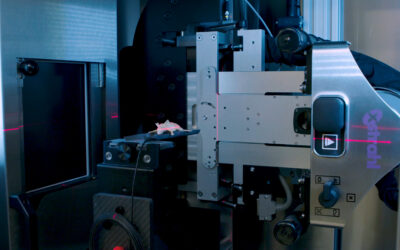Radiation therapy provides a means to kill large numbers of cancer cells in a controlled location resulting in the release of tumor-specific antigens and endogenous adjuvants. However, by activating pathways involved in apoptotic cell recognition and phagocytosis, irradiated cancer cells engender suppressive phenotypes in macrophages. We demonstrate that the macrophage-specific phagocytic receptor, Mertk is upregulated in macrophages in the tumor following radiation therapy. Ligation of Mertk on macrophages results in anti-inflammatory cytokine responses via NF-kB p50 upregulation, which in turn limits tumor control following radiation therapy. We demonstrate that in immunogenic tumors, loss of Mertk is sufficient to permit tumor cure following radiation therapy. However, in poorly immunogenic tumors, TGFβ inhibition is also required to result in tumor cure following radiation therapy. These data demonstrate that Mertk is a highly specific target whose absence permits tumor control in combination with radiation therapy.
Marka R. Crittenden, Jason Baird, David Friedman, Talicia Savage, Lauren Uhde, Alejandro Alice, Benjamin Cottam, Kristina Young, Pippa Newell, Cynthia Nguyen, Shelly Bambina, Gwen Kramer, Emmanuel Akporiaye, Anna Malecka, Andrew Jackson, Michael J. Gough







